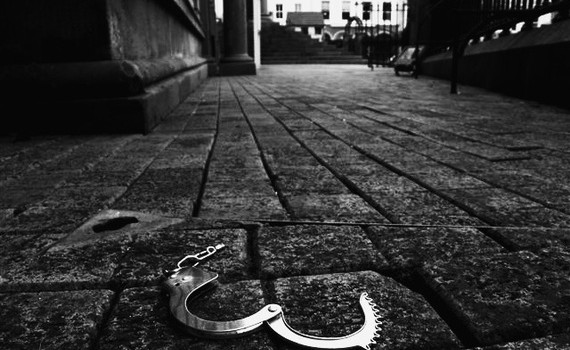More in Community:
-

Looking for a job? Check out these local job fairs
May 4, 2017 -

Youth Grantmakers in Action Award Grants to Youth-Led Projects
May 4, 2017 -

Sawtooth Offers Summer Art Camp for Rising 9th through 12th Grade Students
May 4, 2017
From WFU

Making a difference. Oftentimes the phrase is a cliché — overused and mostly meaningless. But sometimes it’s not.
Sometimes that commitment to “make a difference” is very real. Sometimes, the desire to make a difference changes lives.
Emily Morris coordinates the expungement clinic — helping people remove criminal charges from their records — for the Pro Bono Project at Wake Forest Law, the central point for all pro bono activities at the law school.
Among Wake Forest Law’s clients is Samaritan Ministries of Winston-Salem and Forsyth County, which provides food, shelter and guidance for the hungry and homeless.
Morris tells this story.
In October a young woman visited the clinic and learned she didn’t qualify for expungement. She left but returned about an hour later. She brought a friend, who did qualify and is in the process of having her changes expunged.
“It just validated our whole belief that even if we can’t help every person who walks in the door, the more we educate, the better informed people will be, and then those people can take their knowledge and help other people in their community,” Morris says.
The next expungement clinic is 5 to 7pm Tuesday, Jan. 26, at Samaritan Ministries, 414 E. Northwest Blvd. Clients are asked to enter at the soup kitchen.
“We’ve seen interest build as the clinics have continued,” says Mary Giunca, Samaritan’s marketing director and spokeswoman. “I’ve had several calls and people stopping by to ask about the date of January’s clinic. We’ve had a line at the door each time we opened (a clinic).”
Samaritan spreads the word about the clinics through fliers in the soup kitchen and announcements during lunch.
“We often give out 20 fliers a day in the soup kitchen in the week leading up to a clinic,” Giunca says. “People take them back and give them to friends, neighbors and family members.”
North Carolina statutes regarding expungements tend to be restrictive, Morris says, “but when you can help even one person clean up their record, you are making a huge impact.”
“We serve as facilitator of the expungement process for individuals who qualify, and as an educator so that everyone that walks through our clinic leaves understanding a little more about expungements and why they do or do not qualify,” Morris says.
Here’s how the clinics work:
Clients, says Morris, fill out an intake sheet with some basic questions. They then meet with a law student, who talks about the expungement process and whether the client qualifies. The students at Wake Forest Law facilitate the legal process through a partnership with the Forsyth Clerk of Courts and local attorneys who volunteer their time.
Says Giunca, “Many of our guests also have very little understanding of the judicial system. Having a chance to sit down and tell their stories to someone who is concerned, respectful and nonjudgmental seems to help, even when they’re not able to receive an expungement.”
Liza A. Baron is supervising attorney in Winston-Salem for Legal Aid of North Carolina Inc., a statewide, nonprofit law firm that provides free legal services in civil matters to low-income people to ensure equal access to justice and to remove barriers to economic opportunity, its website says.
Legal Aid also holds expungement clinics, and Wake Forest Law students will be on hand Monday, Jan. 25, to conduct client interviews, Baron says.
“Expungements are a vital legal remedy for the many people in our community, and indeed throughout the state and across the country, who are burdened with the consequences of their criminal records, long after they have completed their sentences and probations,” Baron says.
“Even dismissed charges on one’s record all too often stand in the way of people advancing in the job market. Helping people to expunge charges from their records is an excellent public service that the individuals and society as a whole benefit from. It’s also a great learning opportunity for law students to interact with what may be their first clients, and to learn about the legal process of expungement.”





